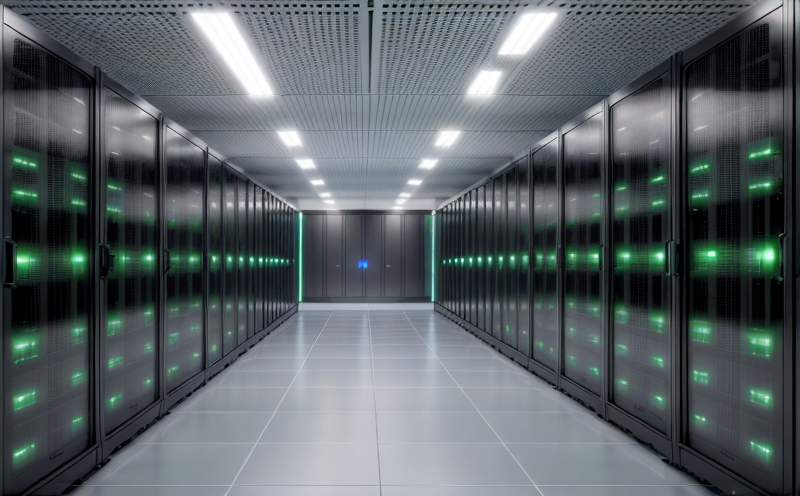Data Center Cloud Security: A Comprehensive Guide
In todays digital age, data centers play a crucial role in storing and processing vast amounts of sensitive information. As more businesses move their operations to the cloud, ensuring the security of these sensitive assets has become an utmost priority. Data center cloud security refers to the set of measures taken to protect data centers from cyber threats, unauthorized access, and other malicious activities.
The Challenges of Data Center Cloud Security
Data center cloud security is a complex and multifaceted issue that requires a thorough understanding of both technical and business requirements. The increasing adoption of cloud computing has led to a significant shift in the way organizations manage their data centers. Gone are the days when data centers were isolated, self-contained entities; today, they are interconnected with other networks, applications, and services.
The primary challenges facing data center cloud security include:
Cloud Security Complexity: Cloud environments introduce new layers of complexity, making it challenging to ensure that security measures are effective.
Rapidly Evolving Threats: Cyber threats evolve at an unprecedented pace, requiring constant vigilance and adaptability in the face of emerging risks.
Security Silos: Traditional security approaches often create silos between different departments or teams, leading to a fragmented view of overall data center security.
Data Center Cloud Security Measures
To address these challenges, organizations must implement robust data center cloud security measures that cover all aspects of their infrastructure. Some key considerations include:
Network Segmentation: Divide the network into smaller segments to limit the spread of malware and unauthorized access.
Identity and Access Management (IAM): Implement IAM systems to ensure that only authorized personnel can access sensitive areas.
Data Encryption: Encrypt data both in transit and at rest to prevent interception or theft.
Here are some detailed points about IAM and encryption:
Identity and Access Management (IAM) Key Considerations
Multi-Factor Authentication (MFA): Implement MFA to add an extra layer of security when authenticating users.
Role-Based Access Control (RBAC): Assign roles to users based on their job functions or responsibilities.
Regular Password Rotation: Enforce regular password rotation policies to prevent password reuse and expiration.
Least Privilege Principle: Limit user access to only what is necessary for them to perform their duties.
Data Encryption Best Practices
Use Industry-Standard Encryption Protocols: Implement encryption protocols such as SSL/TLS or IPsec.
Encrypt All Data at Rest: Encrypt data stored on disks, tapes, and other storage devices.
Regularly Review and Update Encryption Keys: Regularly review and update encryption keys to prevent key compromise.
QA Section
1.
What is the primary goal of data center cloud security?
The primary goal of data center cloud security is to protect sensitive information from unauthorized access, cyber threats, and other malicious activities.
2.
How do cloud environments impact data center security?
Cloud environments introduce new layers of complexity, making it challenging to ensure that security measures are effective.
3.
What is the importance of network segmentation in data center cloud security?
Network segmentation limits the spread of malware and unauthorized access by dividing the network into smaller segments.
4.
How does IAM contribute to overall data center security?
IAM ensures that only authorized personnel can access sensitive areas, reducing the risk of internal threats.
5.
What are some common types of encryption used in data centers?
Some common types of encryption used in data centers include SSL/TLS and IPsec.
6.
How often should encryption keys be updated?
Encryption keys should be regularly reviewed and updated to prevent key compromise.
7.
Can cloud providers guarantee the security of their services?
Cloud providers typically offer robust security measures, but ultimate responsibility for data center security lies with the organization.
8.
What is the role of IT in ensuring data center cloud security?
IT teams must ensure that all necessary security measures are implemented and regularly reviewed to prevent vulnerabilities.
9.
How can organizations protect themselves from emerging cyber threats?
Organizations should stay informed about emerging threats, update their security posture accordingly, and engage with industry experts for guidance.
10.
What is the future of data center cloud security?
The future of data center cloud security will involve continuous innovation, improved collaboration between IT teams and business stakeholders, and increased adoption of artificial intelligence (AI) and machine learning (ML) solutions.
In conclusion, data center cloud security is a critical concern for organizations seeking to protect their sensitive assets from cyber threats. By understanding the challenges facing data center cloud security, implementing robust security measures, and staying informed about emerging risks, organizations can ensure the security and integrity of their operations.

































